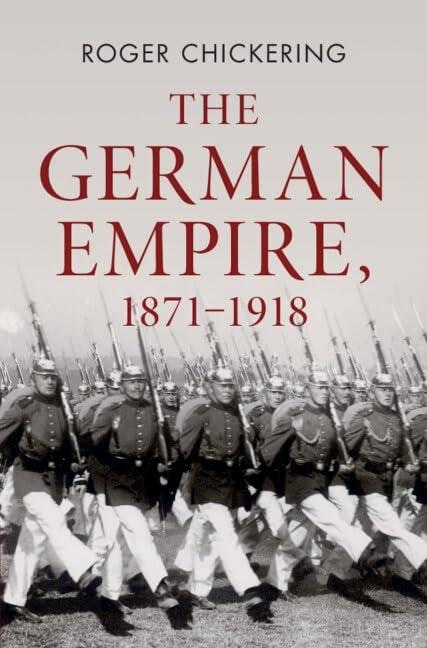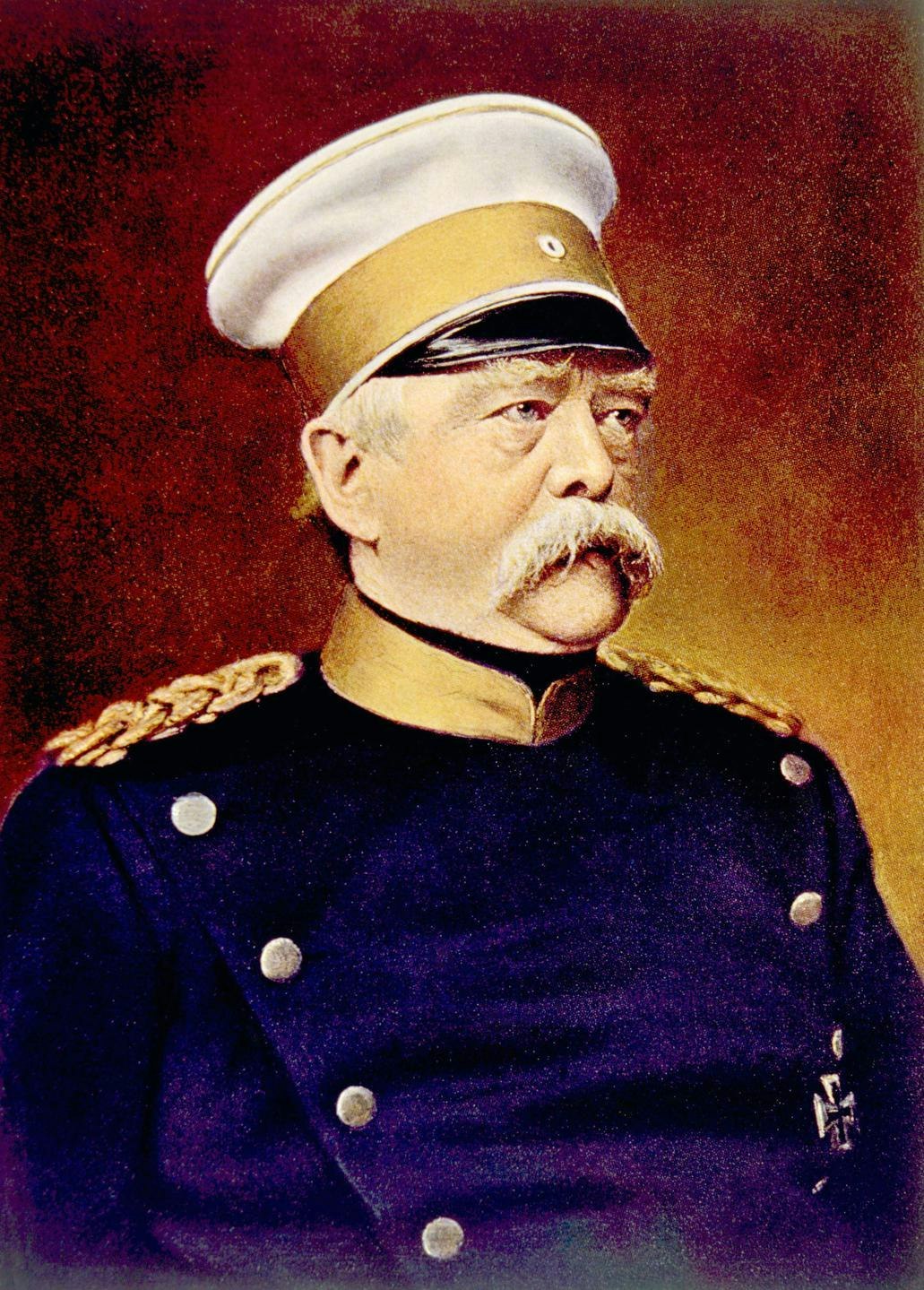This article is taken from the March 2025 issue of The Critic. To get the full magazine why not subscribe? Right now we’re offering five issues for just £10.
In our time, the Weimar Republic has become a favourite metaphor for cultural decadence and political catastrophe. Robert Kaplan, for example, conjures the notion of a “Global Weimar” in his apocalyptic new polemic Waste Land. In fact, Weimar does not entirely deserve its bad press: despite its obvious flaws, it abolished many of the defects of the preceding monarchy. The first German republic perished mainly for lack of republicans.
Officially, however, the republic preserved the title that Bismarck had given his unified state in 1871: das Deutsche Reich (the German Empire). Weimarer Republik was originally a derogatory term invented by Hitler to delegitimise the first fully democratic state on German soil. Using Moeller van den Bruck’s confected mythology to describe their millennial project as das Dritte Reich (“the Third Reich”), the Nazis distinguished their own regime both from the medieval Holy Roman Empire and Bismarck’s nation state.
The imperial monarchy that lasted from 1871 to 1918, which Germans now call the Kaiserreich (“Emperors’ Empire”), is the subject of Roger Chickering’s magisterial new history. This is an important book: the first comprehensive survey in English for two generations, during which our understanding of the period has been transformed — largely thanks to Anglo-American historians such as Chickering.
The author modestly insists he has undertaken “no new original scholarship” in this volume, except into the neglected rural hinterlands of Germany. But as a work of synthesis, requiring the interpretation of a vast corpus of research, Chickering’s book has indeed achieved something of considerable originality.
He enables us to observe through the eyes of contemporaries the sudden irruption into European consciousness of a great power that has, brief interludes apart, dominated the Continental economy ever since. Whilst weaving this Teutonic tapestry, however, Chickering regularly reminds us of how the historiography has corrected itself. To perfect his panorama, he peppers his text with elegant aperçus of his own — the fruit of a lifetime of immersion in this material.

Hence the opening sentence of his prologue reads: “In the beginning was Bismarck, in a manner of speaking.” Fellow historians will appreciate the ironical allusion to “In the beginning was Napoleon” — the notorious first line of the late Thomas Nipperdey’s great three-volume history of 19th century Germany. This was intended to provoke the social historians of the Bielefeld school, who deprecated the role of the “great man” in history. Whilst giving individuals their due, Chickering also takes account of impersonal forces, as all the best historians do.
Nipperdey believed Bismarck’s foundation of the Reich had created a “metapolitical” sense of German identity, a “national patriotism” that transcended confession and class. He was writing in the early 1980s, when the experience of “feeling pride in being a German” seemed to be at its nadir, though its resurgence in 1989 with the fall of the Berlin Wall took the left-leaning academy by surprise.
Chickering does not dissent from Nipperdey’s “lyrical description”, but he qualifies it by pointing out that from the outset, German nationalism derived much of its cohesive force by reference to Reichsfeinde, the purported enemies of the nation or the state.
Bismarck himself was the prime instigator of various kinds of demonisation of the “other”. Against Catholics he unleashed the Kulturkampf, the original “culture war”. Later, he did the same to the socialists. Both outgroups were forced by the Iron Chancellor’s unleashing of the state against them to organise themselves into political movements: the Catholic Centre and the Social Democrats.
Having flourished in adversity, it was these two parties which inherited the ruins of Bismarck’s Reich when the Kaiser abdicated in 1918. Suppressed by Hitler, after 1945, they re-emerged as the Christian Democrats and the SPD, the pillars of the post-war Federal Republic.
Less obvious, yet no less heinous, was the second-class status of Imperial Germany’s substantial ethnic minorities: Poles in the east, Danes in the north and the French of Alsace-Lorraine.
But the most egregious example of ostracism in Imperial Germany was the Jews. Chickering shows how these “German Citizens of Jewish Faith”, though conspicuous by their patriotism, were made scapegoats for what Fritz Stern called the “cultural despair” of those who rejected modern civilisation and its discontents. Anti-Semitism, too, in its secularised, “scientific” form was an integral element of the newfound German identity.
Chickering shows how, by 1913, racial metaphors of “blood” had been codified into the legal definition of who was, or was not, entitled to German citizenship. Only those of German descent qualified as citizens; children of Polish and Jewish migrants from the east were excluded, even if they were born in the Reich. This jus sanguinis (“right of blood”) lasted until 2000, excluding postwar Gastarbeiter (“guest workers”).
Jews suffered various forms of unofficial discrimination, notably exclusion from the officer corps. Though Jewish volunteers were accepted in wartime, official endorsement of anti-Semitic accusations came when the Judenzählung (“Jewish census”) was ordered by the Prussian war minister to discover how many Jews were on active service. The inconvenient answer (more than 80 per cent served on the front line) was suppressed; Jewish casualty rates and decorations for valour were also above average.
But the mendacious narrative that Jews were unpatriotic war profiteers culminated in the biggest lie of all: that the Jews, the “November criminals”, had stabbed the army in the back. Unsurprisingly, the real culprits for defeat were those most responsible for spreading this lie, above all Field Marshal (later President) Hindenburg himself.
The ignominious end of Bismarck’s Reich traumatised the new republic before the ink was dry on its constitution, proclaimed in Weimar in August 1919 after civil war had raged in Berlin. After 600 pages of Chickering, the question that forces itself upon the reader is not about Weimar, but about what went wrong with the Germany that preceded it.
Ever since 1945 a scholarly debate has simmered about the “peculiarities” of German history: between those who see the Nazis as an unfortunate aberration and those who believe that deep-seated differences set the Germans on a special path (Sonderweg).

Lately, this dispute has acquired more than academic interest. Alexander Gauland, a leading figure in the radical nationalist party, the Alternative for Germany (AfD), claims that “Hitler and the Nazis are just a speck of bird shit on more than 1,000 years of successful German history”. A significant minority of Germans now see themselves as victims of post-war Holocaust propaganda designed to instil what another AfD leader, Alice Weidel, calls a “guilt cult”. As I write, the AfD is on the verge of becoming Germany’s second largest party.
In his preface, Chickering observes that the adherence of other Western nations to liberal democratic norms has been called into question, notably in his own country, the USA. This, he claims, reduces the “purchase” of the German Sonderweg. From the perspective of 2025, “the German path of development after 1871 looks less retrograde than precocious”.
However, Chickering would surely be appalled at the disregard for historical facts by AfD politicians such as Alice Weidel (and her US patron Elon Musk), for example rebranding Hitler as a “communist”. It seems to me that his book does identify features of Imperial Germany that predisposed it to authoritarian politics and transmuted nationalism — originally a liberal doctrine — into a racist ideology of the extreme Right.
The fact that Bismarck’s constitution was designed to keep the federal government accountable to the Kaiser, not to the Reichstag, meant that it sought to raise revenues by tariffs rather than taxation. This worked as long as the German military-industrial complex confined itself to land warfare. But once Wilhelm II, under the tutelage of Admiral Tirpitz, embarked on a naval arms race with the British, the logic of general taxation, legitimised by parliament, was inexorable.
Wilhelm’s “personal rule” was sabotaged by his own antics. The Kaiser’s oleaginous Chancellor Bülow tried to harness pan-German nationalism to finance battleships and colonial wars, but was forced to resign when his coalition collapsed. His successor, Bethmann Hollweg, made ever more desperate efforts to obviate the electoral success of the Social Democrats, to no avail.
The Reichstag did indeed grant ever larger military spending, but thereby made itself more indispensable. A choice emerged between an English-style constitutional monarchy and eventual parliamentary democracy or a military gamble leading to dictatorship.
Hence the crisis that unfolded in 1914 was driven by a German war machine that had run out of other options. Chickering points out that for other great powers, mobilisation did not automatically call a halt to negotiations. “In Germany it did.”
As the late Gordon Craig told his students: “The war could have broken out on the moon. Germany would still have invaded Belgium.” And for Bismarck’s Reich, the guns of August were the crack of doom.







